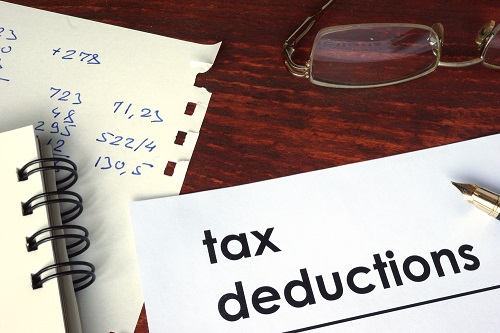Financial stability is a common goal that applies to every individual. However, it requires adequate planning on a diversified portfolio. There are different avenues to investment, such as life insurance cover, savings plan, fixed deposits, etc. The Government of India offers several tax* benefits to encourage such investments for the benefit of every individual. It also extended the benefits by appreciating donations and assisting medical causes. Therefore, tax saving is a valuable financial decision if you are educated on the possible tax deductions. Here is a detail about the related tax-saving under Section 80C, 80D, and 80G.
Section 80C
Section 80C of the Income Tax Act, 1961 is the most preferred and valuable tax*-saving provision based on investments in financial products. Individuals and HUFs can claim a tax deduction of up to ₹1,50,000 under this section from the total gross income.
Investments Eligible For Deductions And Tax Saving Under Section 80C
Here is a detail of the investments that qualify for tax deductions under Section 80C.
Life Insurance - Premium amounts paid by a taxpayer towards all the life insurance policies qualify for tax* deductions. As insurance providers, we increased the range of policies to provide protection through the life insurance cover for the policyholders while providing savings, investments, and tax* benefits. At Tata AIA insurance, we provide term plans, savings insurance solutions, wealth solutions, retirement plans, and combo solutions. The life insurance quotes vary based on the features chosen, such as the riders#. Therefore, you can customise it for your financial needs while saving on tax.
Sukanya Samriddhi Yojana - It is a savings scheme for the girl child that is eligible for deduction.
Equity Linked Savings Scheme - A mutual fund solution with a mandatory lock-in period that can offer market-linked returns with tax deduction benefits.
Other investments - Investments made in Public Provident Fund, Bank Deposits, National Savings Certificate, Senior Citizen Savings Scheme, Fixed Deposits with five year lock-in period, etc., are eligible for a tax deduction.
Stamp Duty and Registration expenses - On constructing a house or buying a property, you can get the expenses incurred towards stamp duty and registration deducted from the gross income after possessing complete ownership of the property.
Home loan repayment - The amount you pay towards repaying your home loan will be eligible for a tax deduction on completion of the construction or purchase.
Subsections of Section 80C
Section 80CCC - Investments made on pension or annuity plans of life insurance companies.
Section 80CCD - Investments made on government-based pension schemes such as the National Pension Scheme.
Section 80CCF - Investments made on long-term government infrastructure bonds.
Section 80CCG - Investments made on equity savings schemes approved by the government.
Section 80D
Purchasing a health insurance policy is an important need to manage medical emergencies. Therefore, Section 80D provides tax deduction benefits to taxpayers who have taken efforts in this direction.
Any individual or HUF can claim a deduction from their gross income for paying the medical insurance premium for any given year. It is a benefit that you can avail of for health insurance plans taken for your benefit or your spouse, dependent children, or parents. It is important to mention that this deduction is over and above the claim availed under Section 80C.
What Payments Qualify For Deduction Under Section 80D?
Payments made towards the following expenditures are eligible for deduction under Section 80D:
Medical insurance premium
Expenses made on preventive health check-ups
Medical expenses on the treatment of a senior citizen who is not covered under any health insurance scheme
A contribution made towards Central government health scheme
An individual can avail upto ₹25,000 for a financial year under this section. And, the allowable limit for a senior citizen is stated as ₹50,000.
Here are a few scenarios that detail the deduction to save tax under Section 80D for the FY 2020-21 and 2019-20.
An individual can claim upto ₹25,000 and an additional ₹25,000 if their parents are below 60 years of age.
An individual can claim ₹25,000 and an additional ₹50,000 if their parents are above 60 years of age.
If both the individual and the parent are above 60 years of age, the maximum limit will be ₹1,00,000.
Section 80G
The Government of India extends its token of appreciation for taxpayers making contributions to certain prescribed funds for the benefit of society by providing deductions to save tax under Section 80G. It is eligible for deduction for individuals, companies, and firms.
Some donations are eligible without a qualifying limit for a 100% deduction, such as the Prime Minister's National Relief Fund, National Defence Fund, Fund for the medical relief to the poor set by the State Government, etc.
Some donations eligible for a 50% deduction without a qualifying limit include Prime Minister's Drought Relief Fund, Jawaharlal Nehru Memorial Fund, etc.,
80GGA is a subsection of Section 80G that provides a tax deduction for donations related to scientific research or development initiatives for rural areas. It is not applicable for individuals having an income from a business or profession.
Conclusion
A tax deduction is a valuable benefit provided on the total gross income for the taxpayers. The provisions for tax deduction are available under various sections in the Income Tax Act, 1961. The most prominent among them is Section 80C which provides tax deductions made on investments. In addition, section 80D and Section 80G are two other important sections that offer tax benefits for medical expenses and donations to charitable funds, respectively. Make sure you understand these tax benefits for better utilization while filing ITR!
L&C/Advt/2022/Mar/0612







 FOR EXISTING POLICY
FOR EXISTING POLICY 
 FOR NEW POLICY
FOR NEW POLICY 




